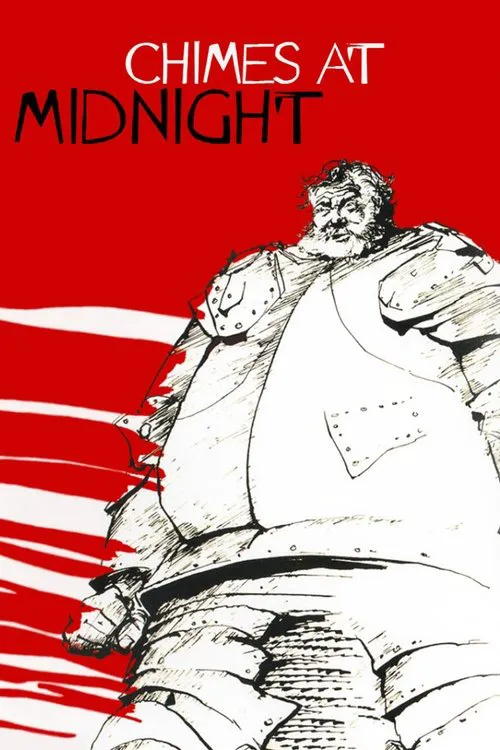Chimes at Midnight

Plot
Set in the late 15th century, during the tumultuous War of the Roses, a Shakespearean epic unfolds as a masterful adaptation, "Chimes at Midnight." Director Orson Welles weaves a compelling narrative, drawing upon elements from multiple plays to create a rich tapestry that explores the complexities of power, loyalty, and redemption. The aging King Henry IV, a usurper to the English throne, struggles to maintain control in the face of widespread dissent. His heir, Prince Hal, has grown disillusioned with the pomp and circumstance of royal life. Rather than embracing his royal responsibilities, the prince prefers the company of those in the lower class, particularly the charismatic and wise-cracking figure, Sir John Falstaff. This portly knight has become a father figure to Hal, teaching him valuable lessons about life, friendship, and loyalty. As tensions escalate, a rebellion led by Henry Percy, the scion of the powerful Northumberland clan, known as Hotspur, threatens to undermine the King's authority. Meanwhile, Prince Hal's associations with Falstaff and his low-born friends become increasingly notorious. His father is disheartened by these choices, fearing they will tarnish the prince's reputation and undermine the legitimacy of the royal family. Welles masterfully navigates the intricacies of Shakespeare's narrative, drawing upon elements from "Henry IV, Part 1" and "Henry IV, Part 2." The film's title, "Chimes at Midnight," is inspired by Shakespeare's "Henry V," where the dying King Henry IV, reflecting on his life, hears the chimes of death, symbolizing the inevitability of fate. Throughout the film, Prince Hal is forced to confront the harsh realities of his world. As he navigates the complex web of alliances and rivalries, Hal must make difficult choices that will ultimately decide his fate. His association with Falstaff serves as a sanctuary, a place where he can be himself, free from the pressures of royal life. However, as his duties as a prince and future king become increasingly apparent, Hal must weigh his loyalty to his friend against his obligations to his family and the crown. One of the most striking aspects of "Chimes at Midnight" is its portrayal of Falstaff. Welles elevates the character, imbuing him with a depth and complexity that is both poignant and hilarious. Through his performances as both King Henry IV and Falstaff, Welles brings these characters to life, imbuing them with a sense of humanity and vulnerability. As the story unfolds, the battle between the rival factions reaches its climax. Hotspur's rebellion is ultimately crushed, but the cost is high, and the consequences for Hal and his friends are far-reaching. In the film's most poignant moment, Falstaff is gravely injured in the Battle of Shrewsbury. As Hal rushes to his friend's side, he is forced to confront the harsh realities of war and the consequences of his choices. Ultimately, "Chimes at Midnight" is a film about the complexities of power, loyalty, and redemption. Welles's masterful adaptation provides a nuanced exploration of Shakespeare's work, one that is both deeply personal and universally relatable. Through its vivid characters and sweeping narrative, the film invites viewers to reflect on the human condition, where choices and loyalty often lead us down uncertain and winding paths.
Reviews
Recommendations




